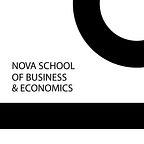Do you have a social media strategy? It is probably wrong
Social media is an essential tool for marketing campaigns, but never their starting point. A strategy must be developed at the brand rather than at a tool level.
The Internet is currently the most important advertising medium in terms of global investment, having recently broken TV’s extended dominance. Social media, in particular, represents one of the key components of online advertising, second only to search in absolute value [1].
Why is social media interesting?
Wide reach, fine-targeting, high speed of diffusion, and willingness of the users to view, interact with, and share content enables advertising campaigns with more than one billion impressions in a single day and high level of engagement among the target group (e.g. CatchDrogon).
Despite the difficulties brought by the proliferation of fake news, the efficiency of social media advertising remains high and it is expected to grow even more in the future. Attempts to control fake news will reduce the volume of information to which each consumer is exposed. Thus, the impact of each advertising campaign will tend to increase.
It seems only logical, then, that companies develop specific strategies for social media, often having as a starting point a question such as: “How can I create a high-impact campaign for my brand on Facebook?”
This approach seems to make even more sense factoring in that Facebook represents, alongside the leader Google, more than 60 % of the global investment in online advertising [2]. Social media is, therefore, a must-have component in the marketing mix of most brands.
What is wrong with social media strategies?
When we say that social media is an essential digital marketing tool, the key-word in the sentence is “tool”. Consider a simple analogy: a hammer is an essential tool in interior design, however, you do not start a decoration project with the question: “How can I make the best use of a hammer to decorate my house?”
Social media is a tool and, as such, should not be the starting point of an advertising campaign or a marketing strategy.
How to plan an advertising campaign
The starting point of an advertising campaign and, in general, any marketing activity, must be consumer insight. The ultimate objective of any company is to create value for consumers and, then, capture a part of this value for the company. Advertising campaigns create value by providing information that persuades consumers to act in a way that adds value to them and the company.
A particularly effective way to gain and use consumer insight is to map the consumer decision journey [3], analyze how the company’s business model performs in this process, and identify opportunities that can be addressed by marketing.
Focusing on the opportunities identified, planning an advertising campaign involves going sequentially through six elements (6Ms): mission, market, message, media, money, and measurement. In order to be efficient, an advertising campaign must, first, be consistent: each element must be built on top of the previous one and all elements must be based on the consumer insight identified as an opportunity.
Depending on the stage of the consumer decision journey identified as an opportunity, the advertising campaign’s goal (mission) can be, for instance, awareness (introduce, increase, or sustain consumer recognition), engagement (develop a relationship with customers and prospects), or performance (generate conversions through direct customer action).
Once the objective is clear, the next steps are the definition of the target group (market) and the specific points to be communicated (message), so that consumers will act in an intended way. Only then is it possible to identify the ideal marketing tool (media) for the campaign. Finally, the last two steps are the definition of the campaign budget (money) and how results should be evaluated (measurement).
When social media is efficient
Social media tends to be efficient for advertising campaigns having as objective awareness or engagement, but not necessarily performance (in this case, search tends to be more efficient).
The choice of target group influences not only whether social media makes sense (do they use and trust social media?), but also which specific tool offers the highest affinity (e.g. Snapchat users tend to be younger than Facebook’s) and, consequently, the highest efficiency.
The message of successful advertising campaigns in social media is usually related to a topic that consumers feel comfortable sharing openly, preferably helping them project a positive image of themselves to the community (e.g. how many people would share content related to bad-breath?).
After considering the specific implications of the choices of mission, market, and message, it is possible to take an informed decision on whether social media can be a smart choice for a particular campaign. Thus, social media is an essential tool for marketing campaigns, but never their starting point. The strategy must be developed at the brand rather than tool level.
This article was edited and also translated from Portuguese by the professor himself. To read the full original article, please visit Nova SBE’s Executive Education Blog.
António Marinho Torres is a global marketer and general manager who has developed a management career in leading companies in consumer goods (Unilever and Cadbury) and technology (Nokia and Vistaprint). More recently, he has focused on technology start-ups, acting as consultant, chief marketing officer, board adviser, and investor. Antonio has lived in seven countries, done business locally in ten (five of which, as General Manager), and headed global initiatives for market expansion of new technologies. At Nova SBE, he teaches marketing, innovation, and entrepreneurship.
